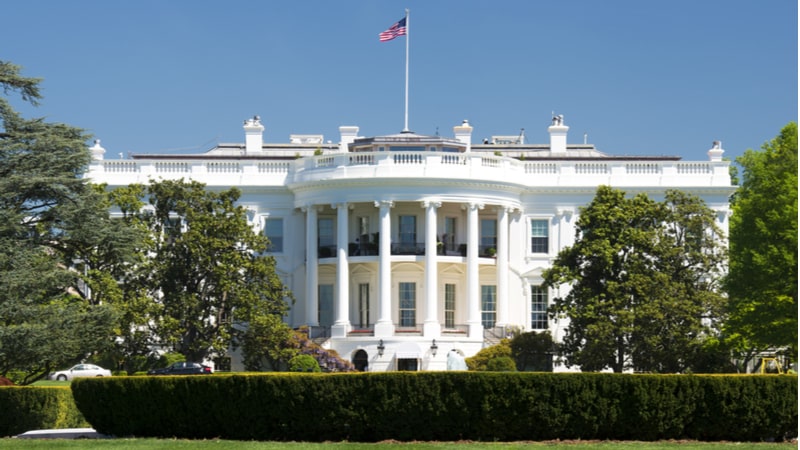
The White House met with heads of companies spearheading the development of artificial intelligence (AI) technologies this week to share concerns and underscore the importance of ensuring the emerging tech is safe before being deployed to the American public.
On May 4, Vice President Kamala Harris – alongside other White House officials – met with the CEOs of Google, Microsoft, OpenAI, and Anthropic to have a “frank and constructive discussion” about the evolution of AI.
According to a White House press release, the conversation keyed on three focus areas:
- The need for companies to be more transparent with policymakers, the public, and others about their AI systems;
- The importance of being able to evaluate, verify, and validate the safety, security, and efficacy of AI systems; and
- The need to ensure AI systems are secure from malicious actors and attacks.
“In order to realize the benefits that might come from advances in AI, it is imperative to mitigate both the current and potential risks AI poses to individuals, society, and national security,” the White House press release says. “These include risks to safety, security, human and civil rights, privacy, jobs, and democratic values.”
During the meeting – which had other big Federal tech executives at the table like Arati Prabhakar of the Office of Science and Technology Policy (OSTP) and Gina Raimondo from the Commerce Department – officials emphasized the importance of the CEOs’ leadership, calling on them to model responsible behavior, and to take action to ensure responsible innovation and appropriate safeguards, and protect people’s rights and safety.
According to the White House, it was agreed upon during the meeting that more work is needed to develop and ensure appropriate safeguards and protections, and the CEOs committed to continue engaging with the administration to ensure the country benefits from AI innovation.
President Joe Biden briefly dropped by the meeting, noting that AI “has enormous potential and enormous danger.” He continued, saying to the CEOs, “I know you understand that. And I hope you can educate us as to what you think is most needed to protect society as well as to the advancement. This is really, really important.”
The conversation with the CEOs is part of a broader, ongoing effort by the Biden-Harris administration to promote responsible innovation, including through its Blueprint for an AI Bill of Rights and the AI Risk Management Framework – both voluntary documents that are intended to serve as critical tools with recommendations and best practices for the design, development, and use of trustworthy AI.
The morning before meeting with the CEOs, the White House made an announcement detailing the new actions it plans to take to set guardrails in place for AI – including policy guidance for Federal agencies, providing $140 million for AI research institutes, and conducting public assessments of existing generative AI systems.
Earlier this week, OSTP published a request for information to better understand how private companies are using AI to surveil and manage workers – including the systems’ prevalence, purposes, deployment, and impacts.
“Some very important pieces are happening,” OSTP Director Prabhakar said during the Milken Institute Global Conference on May 1. “Our work at the White House and working with our colleagues across government is really the bigger question of a comprehensive and cohesive approach to policy that will allow us to get the kind of governance over AI that we need to make this whole story come out right.”
